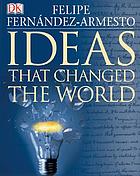20 November
time - mythical?
You were asked to think about these issues
... whenever a person (young or old) feels that the world is changing too rapidly, his characteristic response is to evoke an idealized and stable past. On the other hand, when a person feels that he himself is directing the change and in control of affairs of importance to him, then nostalgia has no place in his life: action rather than mementos of the past will support his sense of identity.
Agree? Do you feel nostalgic for an idealized and stable past, or are you a person of action who has no need for mementos of the past?
The cult of the past calls for illusion rather than authenticity ... (when) people perceive that changes are occurring too rapidly, spinning out of control, nostalgia for an idealized past waxes strong ... passion for preservation arises out of the need for tangible objects that can support a sense of identity.
Why do we like the Andy Griffith show? Is it a museum piece or does it reflect "eternal" values? Is the profession of librarianship a "nostalgic" enterprise? If so, is that wrong?
Blindness to experience is in fact a common human condition ... Danger occurs when the scientist then naïvely tries to impose his findings on the real world, for he may forget that the simplicity of human beings is an assumption, not a discovery or a necessary conclusion of research.
Do we ever experience this situation in our readings and studies? Are we ourselves susceptible to it?
an idea for the day


